When asked about their possible reactions to either Donald Trump or Joe Biden winning the November election, voters express more positive reactions to Biden winning the election – either excitement or relief – than to Trump being reelected as president.
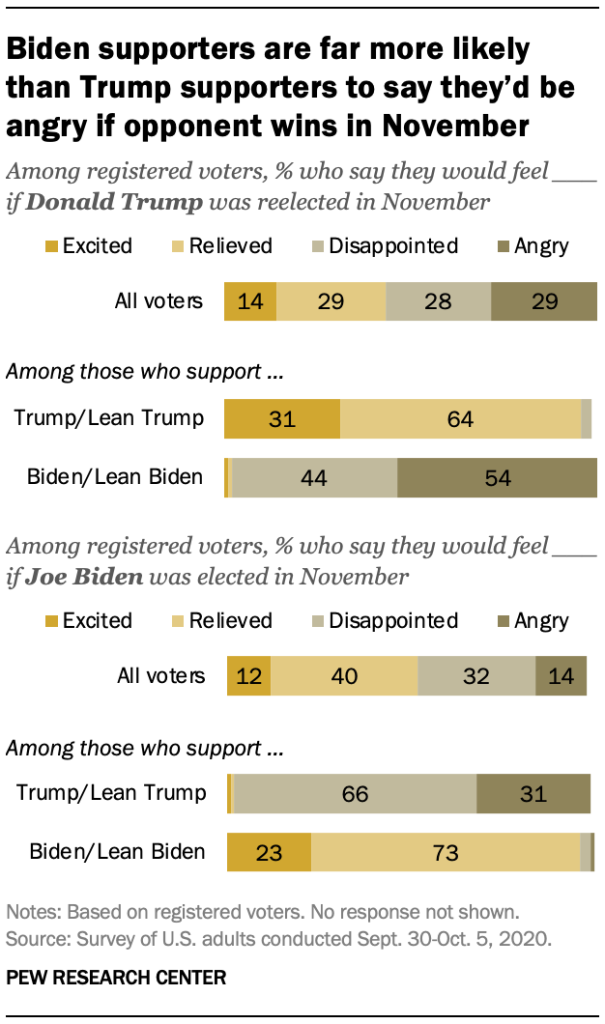
About half of voters (53%) say they would feel either excitement or relief if Biden won the 2020 presidential election, compared with 46% who say they would have negative reactions – disappointment or anger – toward his possible victory.
By contrast, more voters say their reaction in response to Trump winning the election would be negative (57%) than positive (42%). About twice as many voters say they would be angry if Trump wins reelection (29%) than if Biden was elected president (14%).
A majority of Trump supporters (64%) say they would feel relieved if the president is reelected; far fewer (31%) say they would be excited. If Biden wins, more Trump supporters say they’d feel disappointment (66%) than anger (31%).
Biden’s supporters are even more likely than Trump supporters to say they’d be relieved if their candidate wins (73% say this). And far more Biden (54%) than Trump supporters say they’d be angry if the other candidate wins.
Supporters of both candidates are somewhat less likely to say they would be angry in the event of the opposing candidate’s election than they were in August (61% of Biden supporters then, 54% now; 37% of Trump supporters then, 31% now).
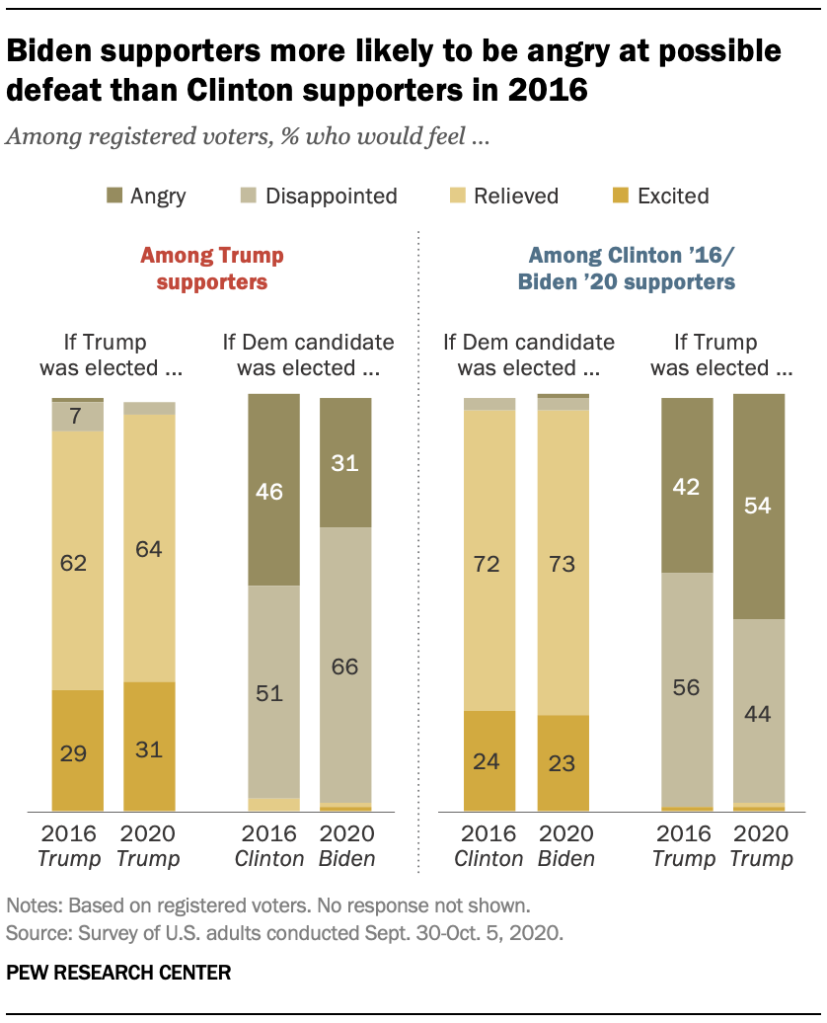
Trump supporters have similar reactions to the prospect of victory in the election as they did in November 2016 before the election. As is the case today, most Trump supporters said they’d be relieved (rather than excited) if Trump beat Hillary Clinton. However, Trump supporters are somewhat less likely today to say they would be angry (rather than disappointed) if Biden won than said they would be angry if Clinton won in 2016 (31% now, 46% then).
By contrast, more Biden supporters say they’d be angered by a Trump victory compared with Clinton supporters four years ago (54% to 42%). As in 2016, about a quarter of Biden supporters would be excited by a Biden victory, while about three-quarters say they would feel relief.
Many see ‘lasting harm’ if the other party’s candidate wins in November
Overwhelming majorities of both Biden and Trump supporters say that if the other candidate wins in November they would not only be very concerned about the country’s direction, but that this would lead to lasting harm to the nation.
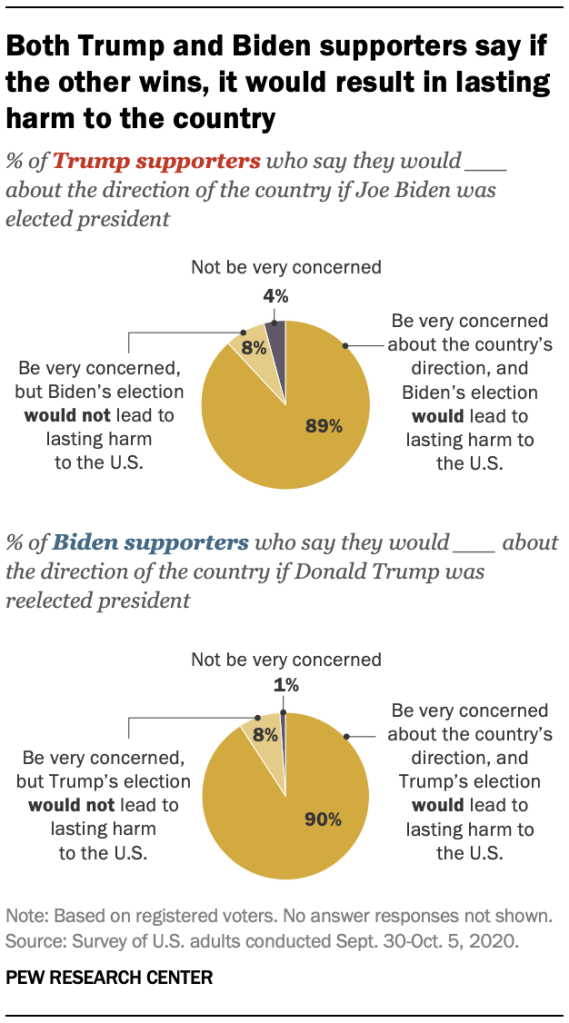
Fully 90% of Biden supporters say this about the prospect of Trump’s reelection, while 89% of Trump supporters say this about the prospect of Biden as president. Just 8% of both Biden supporters and 8% of Trump supporters say that although they would be very concerned if the other was elected, it would not result in lasting harm. Very few (just 4% of Trump supporters and 1% of Biden supporters) say they would not be very concerned about the country’s direction.
Trump and Biden supporters overwhelmingly want their candidate, if elected, to focus on concerns of all Americans
Majorities of both Trump (86%) and Biden (89%) supporters say that their preferred candidate, if elected, should focus on addressing the needs of all Americans, “even if it means disappointing some of his supporters.” Only about one-in-ten in each camp (13% of Trump and 10% of Biden supporters) say their candidate should focus on the concerns of “those who voted for him, without worrying too much about the concerns of those who didn’t vote for him.”
Although there are no major differences across demographic groups who express this viewpoint, younger supporters of both Trump and Biden are slightly less likely to say that their candidate should address the concerns of all Americans than older supporters.
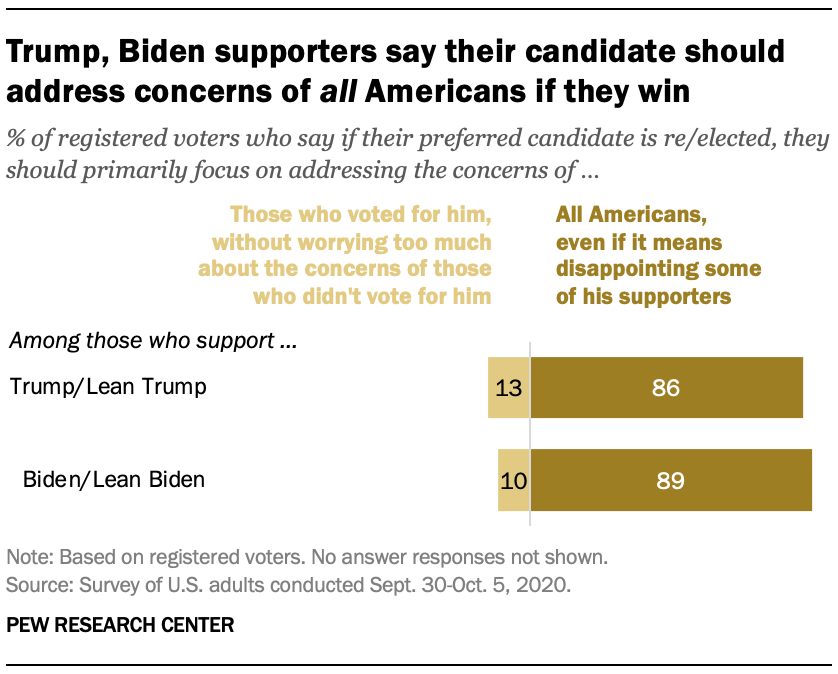
About half of voters say politics is a struggle between right and wrong
Roughly half of all voters (51%) say they think about politics as a struggle between right and wrong, while about as many (48%) say they don’t think about politics this way. The share of voters saying politics is a struggle between right and wrong has increased 14 percentage points from 37% in January.
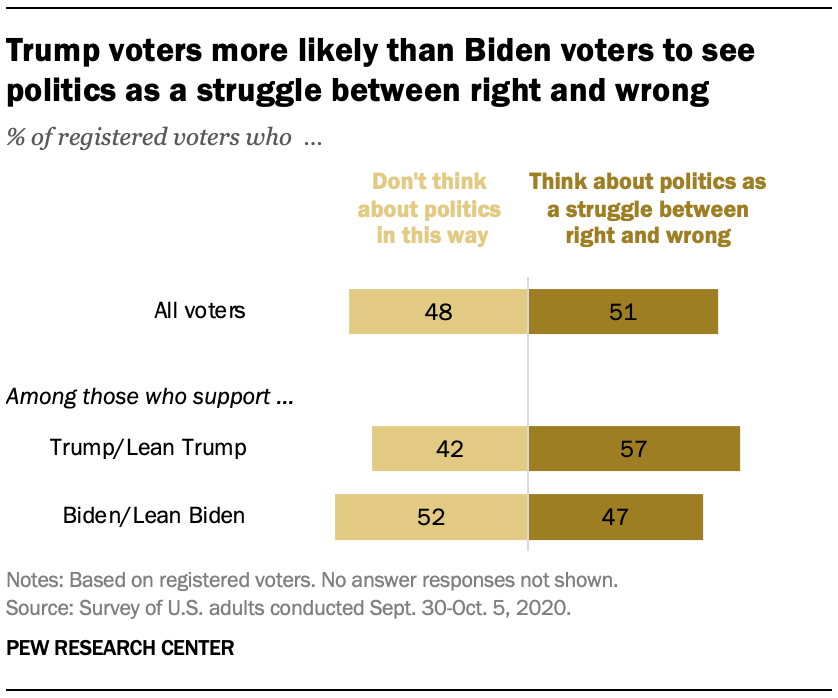
Trump voters are more likely than Biden voters to view politics as a struggle between right and wrong. A 57% majority of Trump voters say this, while roughly four-in-ten (42%) say they don’t think about politics in this way. Biden voters are about evenly divided: 47% say they think of politics as a struggle between right and wrong, while 52% say they do not.




